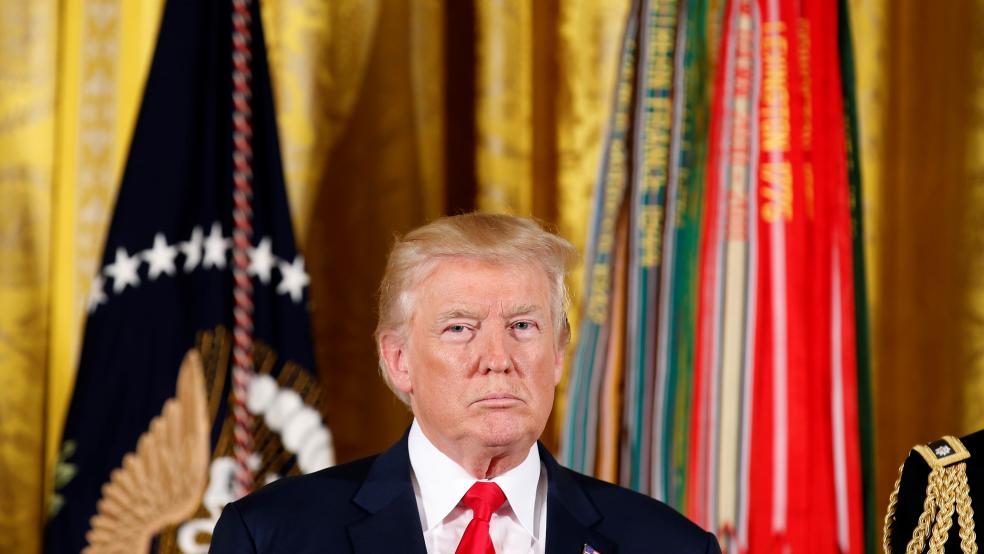Blue Dog Democrats, while not precisely extinct, have been an endangered species in Washington for nearly a decade. Usually hailing from swing voting districts, the fiscally conservative Democrats enjoyed a brief period of outsized influence in Congress during the end of the George W. Bush administration and the very beginning of the Obama administration.
That ended, though, in the Republican wave election of 2010, when the kind of closely divided districts typically held by Blue Dogs went overwhelmingly Republican. Since then, the Blue Dogs have represented a rump faction of the Democratic Party in Congress.
Related: Meet the Man Who Could Determine Your Tax Bill Next Year
Right now, there are 18 official members of the Blue Dog coalition in the House of Representatives -- less than 10 percent of the Democrats in the House -- and they still lay claim to what they call the “center” of the U.S. political spectrum. A mission statement declares that they are “dedicated to pursuing fiscally-responsible policies, ensuring a strong national defense, and transcending party lines to get things done for the American people.”
Because the Democrats have been out of power in the House of Representatives for most of a decade, the Blue Dogs’ influence on the national scene has been limited. And because Republicans have held the majority at the sufferance of a hard-right element of the party that brooks no compromise with Democrats, efforts by the GOP to reach across the aisle have been few and far between.
However, with Republican leaders in Congress and President Trump all increasingly frustrated at their own inability to come to an agreement on the effort to repeal and replace the Affordable Care Act, and the prospect of further internecine fighting over the budget and debt ceiling on the horizon, the desperation for a legislative win is practically palpable.
That may account for reports that the Trump administration has been reaching out to the remaining Blue Dogs to talk about possible areas of agreement on tax reform.
Related: Congress Is Constructing a Wall -- but It’s Built Around Trump
Republicans in Congress have identified a rewrite of the federal tax code as their next major legislative undertaking, even in the face of demands by the president that they remain focused on health care. And while the plan appears to be to use the Senate reconciliation process to pass tax reform, so that the GOP’s slim, 52-vote Senate majority won’t have to face a Democratic filibuster, the administration appears to be thinking about hedging its bets by making overtures to the only Democrats likely to even consider crossing the partisan divide for a tax bill.
The administration’s strategy was laid out in a Politico article on Tuesday, in which White House legislative affairs director Marc Short said that the president’s preference is for a bipartisan deal to reform the tax code.
And there is good reason to believe that isn’t just Washington happy talk from an administration trying to project an air of bipartisanship. The Republican Congress, in the first seven months of the year, has shown itself embarrassingly unable to strike deals among its own members in order to take advantage of their control of both houses.
A problem for Republicans has been their inability to cater to both their more centrist members and their far-right elements. In the health care debate and in other disputes, making one side of the spectrum happy has tended to alienate the other side. This has handcuffed Republican leadership at key moments, and could do so again during a push to rewrite the tax code.
Related: Trump May Be in a Legislative Slump, but His Energy Agenda Is Getting Lots of Hits
If the GOP were able to craft a tax bill that has crossover appeal, it would be at least possible to write off the votes of some of the party’s most extreme members if some of the Blue Dogs could be brought along.
This is a moment heavy with political import for the leaders of the Blue Dog Coalition, Reps. Jim Costa (D-CA), Henry Cuellar (D-TX) and Daniel Lipinski (D-IL).
In the past, when Blue Dogs have been successful at the polls, it has been by striking a balance between the Republican and Democratic positions that allowed independents and voters with a soft affiliation to the GOP to feel comfortable crossing over and voting for a Democrat. However, Donald Trump’s presidency presents a slightly different calculus.
The president has become such a polarizing figure that the kind of aisle-crossing behavior that in the past won the Blue Dogs points for bipartisanship will now look to many Democrats like colluding with the enemy. Democratic members of Congress whose only problem in past elections has been their Republican opponents could find themselves facing primary challenges from activists who see helping Trump pass tax reform as a betrayal.
Whether and how the remaining Blue Dogs will try to walk the fine line between bipartisanship and base-pleasing could be a key storyline over the next year.





